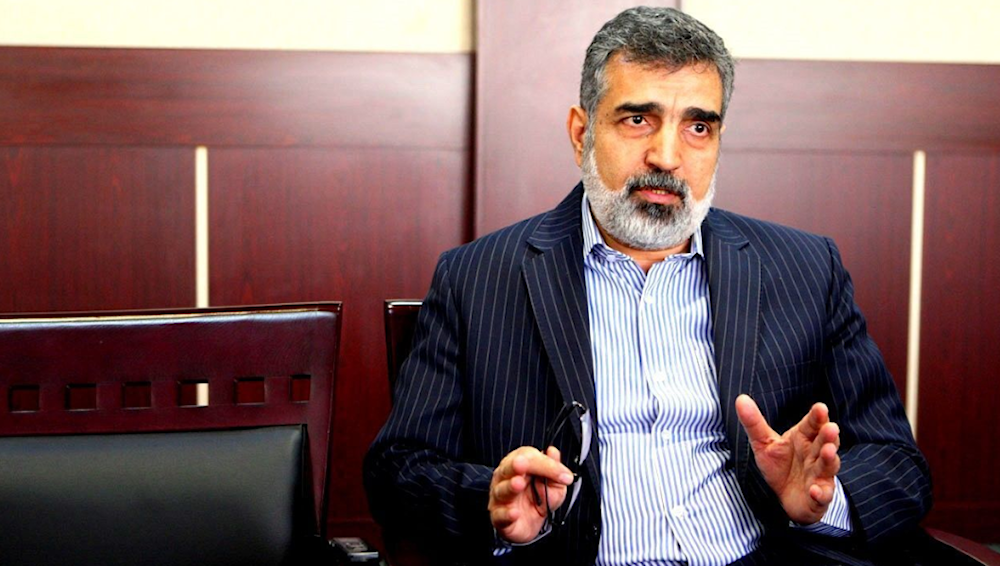Iran warns of technical response to potential IAEA resolution
Iran warns of technical measures if the IAEA issues a resolution against its nuclear program, slamming the agency's report as politically driven and influenced by Israeli intelligence. Tehran vows not to bow to Western pressure.
-

Behrouz Kamalvandi, spokesperson of the Atomic Energy Organization of Iran (AEOI). (IRNA)
Behrouz Kamalvandi, spokesperson for the Atomic Energy Organization of Iran, announced that any resolution issued against Iran by the International Atomic Energy Agency (IAEA) will be met with "technical measures" as part of the country's official response.
He further stated that Iran's response may also involve a reassessment of its level of cooperation with the IAEA.
Kamalvandi criticized the IAEA's latest report on Iran’s nuclear program, asserting that it relied heavily on information provided by "Israel" and other intelligence agencies. He dismissed the accusations as politically motivated, lacking legal or technical basis, and claimed the West's true aim is to undermine Iran’s scientific progress.
"As Iran advances scientifically, political pressure increases in an attempt to derail its development," he said, firmly adding, "Iran will not yield to this pressure."
Tehran asserts oversight power over inspectors
Kamalvandi also revealed that the IAEA has established a special office dedicated solely to Iran's nuclear program, something it has not done for any other country. This office employs 70 staff members, in addition to 120 inspectors monitoring Iran’s nuclear facilities.
He emphasized that Tehran retains the authority to approve or reject any inspector nominated by the agency.
Highlighting what he described as disproportionate scrutiny, Kamalvandi noted that although Iran possesses only about 3% of the world’s nuclear facilities, it accounted for 22% of the IAEA’s inspections last year.
He also disclosed that during a recent visit to Tehran, IAEA Director General Rafael Grossi proposed that Iran halt the storage of enriched uranium, but did not raise the issue of stopping enrichment itself.

 2 Min Read
2 Min Read








